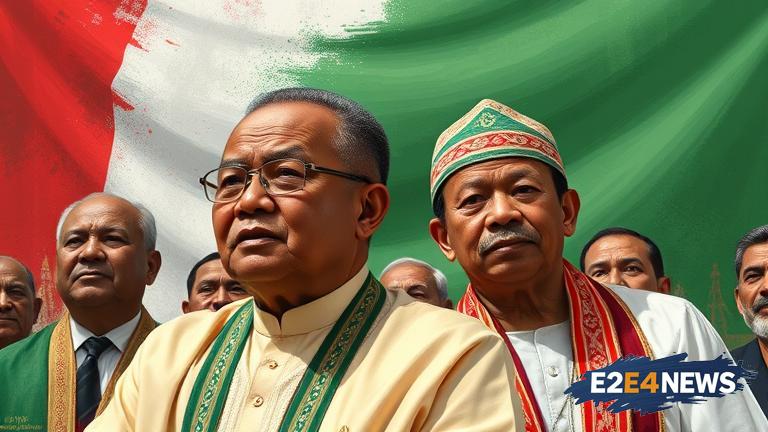The Peoples Democratic Party (PDP) has sparked controversy with its recent announcement on zoning. According to reports, the party has decided to zone the 2027 presidential ticket to the Southern region. This decision has been met with mixed reactions from party members and stakeholders. The PDP has been under pressure to zone the ticket to the South, following the completion of President Muhammadu Buhari’s second term in office. The party’s leadership has been accused of favoring the North in previous elections, and this decision is seen as an attempt to address the perceived imbalance. However, the retention of the party’s leadership role in the North has raised eyebrows, with some questioning the logic behind the decision. The PDP has a long history of zoning, which has been a contentious issue within the party. The party’s constitution provides for zoning, but the implementation has been inconsistent. The decision to zone the presidential ticket to the South is seen as a strategic move to gain support from the region. The South has been a key battleground in Nigerian politics, and the PDP is hoping to capitalize on the region’s voting power. However, the party faces stiff competition from the All Progressives Congress (APC), which has a strong presence in the region. The APC has been accused of trying to undermine the PDP’s chances in the South, and the zoning decision may be seen as a response to these efforts. The PDP’s leadership has been under pressure to deliver a winning ticket, and the zoning decision is seen as a crucial step towards achieving this goal. The party’s national chairman, Dr. Iyorchia Ayu, has been instrumental in pushing for the zoning decision. Ayu has been a vocal advocate for zoning, and his efforts have paid off with the party’s decision to zone the ticket to the South. However, the retention of the party’s leadership role in the North has raised questions about Ayu’s own position. Ayu is from the North, and his retention as party chairman has been seen as a contradiction to the zoning decision. The PDP has a long history of internal conflicts, and the zoning decision may exacerbate these tensions. The party’s stakeholders are divided on the issue, with some supporting the decision and others opposing it. The decision has also sparked debate about the merits of zoning in Nigerian politics. Some argue that zoning is necessary to ensure fairness and balance, while others see it as a form of discrimination. The PDP’s zoning decision has significant implications for the 2027 presidential election. The party is hoping to capitalize on the decision to gain support from the South, but it faces stiff competition from the APC. The election is expected to be highly contested, with both parties pulling out all the stops to win. The PDP’s zoning decision is a strategic move, but it remains to be seen whether it will pay off. The party’s leadership will need to navigate the complexities of Nigerian politics to deliver a winning ticket. The zoning decision has also raised questions about the party’s commitment to fairness and balance. The PDP has been accused of favoring certain regions over others, and the zoning decision may be seen as an attempt to address these concerns. However, the retention of the party’s leadership role in the North has raised eyebrows, and the party will need to justify this decision to its stakeholders. The PDP’s zoning decision is a significant development in Nigerian politics, and it will be closely watched in the coming months. The party’s ability to deliver a winning ticket will depend on its ability to navigate the complexities of zoning and internal conflicts. The 2027 presidential election is expected to be highly contested, and the PDP’s zoning decision is a crucial step towards determining the outcome.
